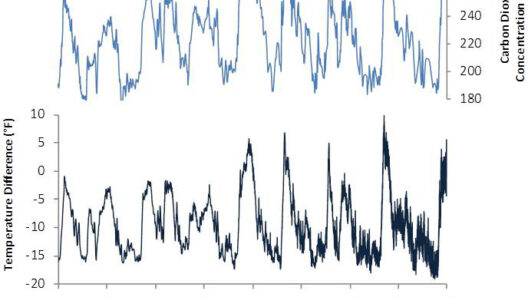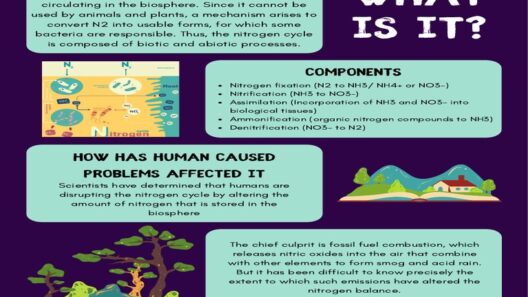Global warming stands as one of humanity’s most pressing challenges, encompassing not only a rise in temperatures but also a multitude of profound effects that ripple through various aspects of life on Earth. The phenomenon of climate change extends beyond the superficial increase in global temperatures — it penetrates deep into the complex systems that support life. To grasp its full extent, we must delve into the multifaceted impacts engendered by this crisis.
One of the most conspicuous consequences of global warming is the alteration of weather patterns. The amplification of heat in the atmosphere has irrevocably changed the dynamics of climate systems, resulting in more frequent and intense weather events. As the planet’s temperature escalates, increased evaporation contributes to heavier rainfall and greater incidence of flooding. Conversely, areas already arid may experience exacerbated drought conditions. This duality creates a paradox, leading to severe consequences for agriculture, water supplies, and overall ecosystem health.
The ramifications of these weather anomalies extend to food security. Crop yields are profoundly influenced by temperature and precipitation patterns. As extreme weather events become more prevalent, staple crops such as wheat, rice, and maize are threatened, potentially leading to widespread food shortages. Agricultural systems that have evolved over centuries are being strained to their limits, unable to adapt quickly enough to the radical shifts imposed by an overheating planet. Consequently, millions are at risk of hunger, homelessness, and health crises.
In tandem with these terrestrial challenges, global warming significantly impacts the world’s oceans. Rising temperatures contribute to ocean thermal expansion, which, coupled with the melting of ice sheets and glaciers, raises sea levels. Coastal communities face existential threats as their homes are progressively engulfed by encroaching waters. Yet the sea’s response to warming extends beyond mere elevation. Increased carbon absorption leads to ocean acidification, which endangers marine biodiversity. Organisms such as coral reefs, shellfish, and numerous fish species find themselves at risk, with potential cascading effects throughout the marine food chain.
Moreover, the phenomenon of melting ice caps reveals additional impacts of global warming. The Arctic region, in particular, serves as a crucial barometer of climate health, yet it is warming at a disproportionately high rate. The retreat of the polar ice contributes to feedback loops that exacerbate global warming, as darker ocean water absorbs more sunlight than reflective ice, thereby increasing atmospheric temperatures further. This situation is not merely an isolated spectacle; rather, it holds implications for global weather patterns, ocean circulation, and even species migration.
Beyond the immediate environmental consequences, global warming has deep socio-economic implications. As natural disasters become more frequent, the financial burden on affected regions escalates. Infrastructure damage, emergency response costs, and recovery efforts demand vast resources, often straining economies. Vulnerable populations, particularly in developing nations, find themselves disproportionately affected. They possess the least capacity to adapt to environmental changes, facing health risks, poverty, and displacement.
Additionally, global warming has intricate links with public health. The prevalence of diseases is subject to alteration under climate change. Warmer temperatures tend to extend the range of vector-borne diseases, allowing pathogens like malaria, dengue fever, and Zika virus to spread to previously unaffected areas. The increased frequency of extreme heat events poses direct health risks, adding further strain to healthcare systems. Vulnerable groups, such as the elderly and those with pre-existing conditions, are at heightened risk.
A more profound consideration arises when one examines the psychological impacts of climate change. The sense of loss, anxiety, and helplessness can permeate individuals and societies as the tangible effects of global warming unfold. Climate anxiety has emerged as a significant concern, especially among younger generations facing an uncertain future. The psychological burden must not be overlooked, as it intertwines with the socio-economic and physical repercussions of a warming planet.
However, amid this grim tableau, a crucial truth emerges: action is still within our grasp. Global warming is not an insurmountable obstacle but a call to action. A paradigm shift in how societies operate, consume, and think about the environment can yield transformative results. Renewable energy sources such as solar, wind, and hydroelectric power have become increasingly viable alternatives. Investing in sustainable practices will foster economic resilience, while conservation and restoration efforts can rejuvenate ecosystems.
The transition to a low-carbon economy promises not only to mitigate climate change but also to stimulate innovation. Embracing green technologies and sustainable practices can create job opportunities and enhance global competitiveness. Engaging with local communities and empowering individuals to take action reinforces the fabric of society, cultivating resilience against future disruptions.
Moreover, advocating for systemic change can drive policy reforms that put environmental health at the forefront. Mobilizing collective action through grassroots movements can amplify voices and lead to substantive legislative progress, shaping future generations’ relationship with nature.
As we navigate the complexities of global warming, fostering curiosity and a shift in perspective becomes imperative. Viewing our environment through an ecological lens can inspire deeper appreciation and responsibility toward the planet. Understanding that our actions reverberate through interconnected systems encourages stewardship and conscientious living.
In conclusion, global warming transcends mere temperature rise; it incites a cascade of profound consequences impacting everything from agriculture and health to economic stability and psychological well-being. An expansive awareness of these effects can define our response to the climate crisis. The time has come for collective action to ensure a viable future, safeguarding our planet for generations to come.








